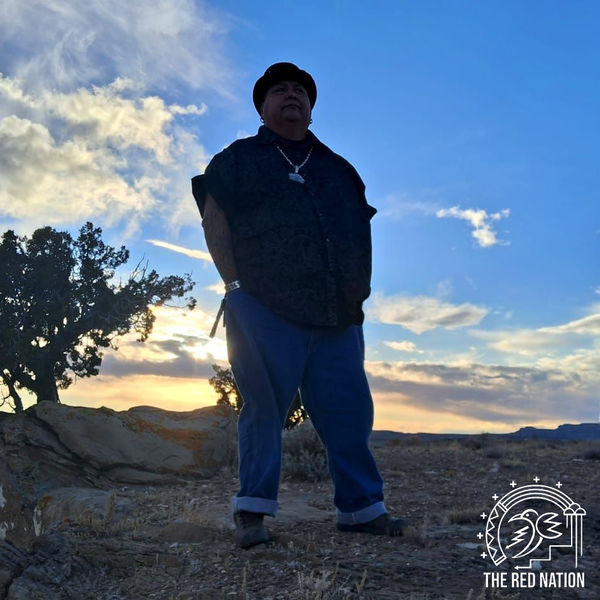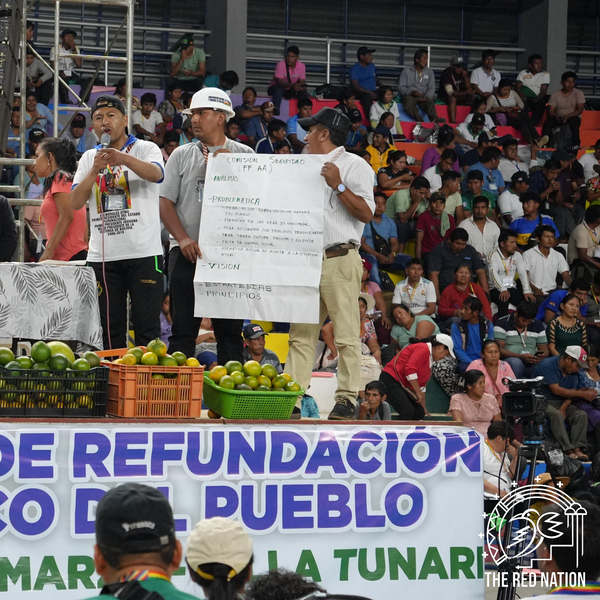From Turtle Island to Palestine: The Criminalization of Indigenous, Black, and Palestinian are Linked
by Benay Blend
In May 2018, U.S. Attorney General Jeff Sessions announced a shift in the country’s immigration policy: “zero Tolerance” for human rights. Those attempting border crossings are now subject to federal criminal prosecution while their children were taken to be warehoused away from their families. Though this policy has been reversed, many of those relieved by Trump’s decision ignore that Palestinians have endured family separations for decades. Moreover, not only has Israel carried out these horrific practices since 1948, as notes journalist Ramzy Baroud, family separation has been carried out towards people of color in the U.S. for hundreds of years.
For Shaun King, the erasure of historical precedents has led to two “troubling” statements: “This is not the American I know and love” and “How could this ever happen in the U.S.” While acknowledging current human rights abuses, King goes on to claim that such assertions are appalling because among people of color family separation has always been “deeply entrenched” in American society. For example, Africans forced into slavery were ripped from their children not only during the voyage over, but also later at the auction block, and this lasted for nearly 250 years. Along with Black children often orphaned during slavery, Native families routinely mourned their children who were forcibly sent to boarding schools. From the late 1800s until the 1970s, school officials attempted to erase Indigenous culture by cutting children’s hair, changing their names, and generally stripping away language and family.
Moving on from historical accounts, King cites the current practice of mass incarceration, of which he claims the crisis of immigrant detention is but one facet of a larger problem. Presently, thousands of adults and children, predominantly Black, Latinx, and Indigenous are imprisoned without convictions because they cannot pay cash bail. Incarcerated sometimes for years before facing trial, these prisoners, too, cannot be with family. Given the continuity of family separation, it has become so normalized, King claims, that it should be no surprise that the power structure embraces such policies. Moreover, Trump has paved the way by dehumanizing border-crossing immigrants in much the same way as Africans escaping slavery, Indigenous children forcibly placed into boarding schools, and today among victims of police violence. Indeed, as King explains, the United States has become the “incarceration nation,” as the criminalization of poverty, simple drug addiction, and mental illness among other things, has led to record numbers of people warehoused today in prisons.
Although there are major differences between the plights of Palestinians in their homeland and Black people in the United States, there are also similarities. Both communities face high levels of state-sponsored violence. For example, on July 16, 2018, Chicago police released a video of the fatal shooting of Harith Augustus who the department claimed was armed. Augustus’ death was one storyline among many, including Antwon Rose, Michael Brown, Eric Garner, Sandra Bland, and Philandro Castile—all victims of state violence that inspired nation-wide protest. “Minorities, and not just black people, but minorities feel like the police are the biggest terrorist group in the nation,” Taylor Williams told Jordana Rosenfeld of The Nation after the June 25, 2018 shooting of Antwon Rose in Pittsburgh.
In Palestine, too, Israeli legal systems do not hold security forces responsible for their behavior. Organized as a form of popular resistance in March 2018, the Great Return March has spearheaded weekly non-violent protests that highlight the right of return as well a desire to break the arbitrary Israeli siege imposed on the Gaza Strip. In response, Israeli snipers and bombers have murdered over 131 non-violent protestors and injured over 14,811 more, including over 2,525 children and 1,158 women (current as of June 24, 2018). Among the latest victims to go viral, Razan al-Najjar died from a bullet inflicted by a sniper as she was treating patients. As Domenica Ghanem notes, this violence has additional significance because U.S. police forces train with Israeli forces who are now murdering Palestinian activists in large numbers. Moreover, “skunk water,” a liquid used by Israel to break up protests, has found its way into U.S. police departments.
Among the root causes of the current crisis Shaun King lists white supremacy and bigotry. Indeed, it is people of color and Muslims who bear the brunt of our harsh immigration policies that, too, bear the mark of profiteering and privatization. Whether in private prisons or detention centers, increasing incarceration rates spell big profits for those building and running these facilities. (Yet, the vast majority of incarcerated people are held in publicly funded prisons, not for-profit prisons.) “In this country,” King concludes, “you can almost always follow the money trail.” According to Ramzy Baroud, there are other trails to follow, too. “It is as if Trump is following an Israeli blueprint,” Baroud explains, “fashioning his designs around the principles that guided Israeli policies towards the Palestinians for many years.” Indeed, Baroud notes that after September 11, 2001 attacks, the U.S. became even more enamored with Israel’s security apparatus.
Echoing Baroud’s claims, Alice Rothchild explains that both the U.S. and Israel position themselves as beacons of democracy, yet both practice mass incarceration, employing the same global prison industries. Even before Trump’s “zero tolerance” immigration policy separated children from their parents, juvenile detention centers were home mostly to children of color being incarcerated quite often for petty crimes. Subjected to abusive interrogations, medical examinations, and often strip searches, these conditions mirror the plight of Palestinian children held in Israeli military prisons charged frequently with merely throwing stones against a wall.
Targeting the children of known activists puts pressure on the entire community to end resistance. For example, the son of Iyad Burnat, well-known as the founder and head of the Bil’in Popular Committee Against the Wall, was abducted on the way home from buying pizza in early December 2017. After being charged with throwing stones at the apartheid wall, Abdul-Khaliq was sentenced in Ofer Military Court to 13 months in military prison located four hours away in the Negev Desert. Moreover, the court extorted $5000 from the family in bogus fines. In a statement to be read at The Red Nation’s Solidarity Beyond Borders forum on July 27, 2018, Iyad said: “The worse part of communicating this with you, is that he is not the only one, his case is in no way unique. How can there be peace when your children are beaten, shot, arrested and held in military prisons for no justifiable reason? If Israeli Occupation of Palestine is not racism, if it is not apartheid, then what is? The world must no longer stay silent.” Imprisoning both groups of children, in Palestine and the U.S., is a political and racialized act that in the U.S. is but one horrific piece embedded in American history. However, because it crosses modern borders, the struggle must also be international in scope and solidarity.
Activists against the Occupation of Palestine and for social justice in the U.S. often link the two struggles. For example, Jewish Voice for Peace recently launched “Deadly Exchange,” a campaign to terminate U.S. police involvement in Israeli training programs. In response to such pressure, Durham, North Carolina became the first city to ban trainings of U.S. police by the Israeli military. Inspired by such victories, a recent Black Lives Matter platform demands U.S. divestment from the Occupation of Palestine. In addition, Palestinians expressed support for Native People during the government’s plan to install an oil pipeline across Standing Rock. In a statement from the Boycott, Divestment and Sanctions (BDS) national committee, Palestinians recognized the ways that both Indigenous peoples have struggled to protect their land.




